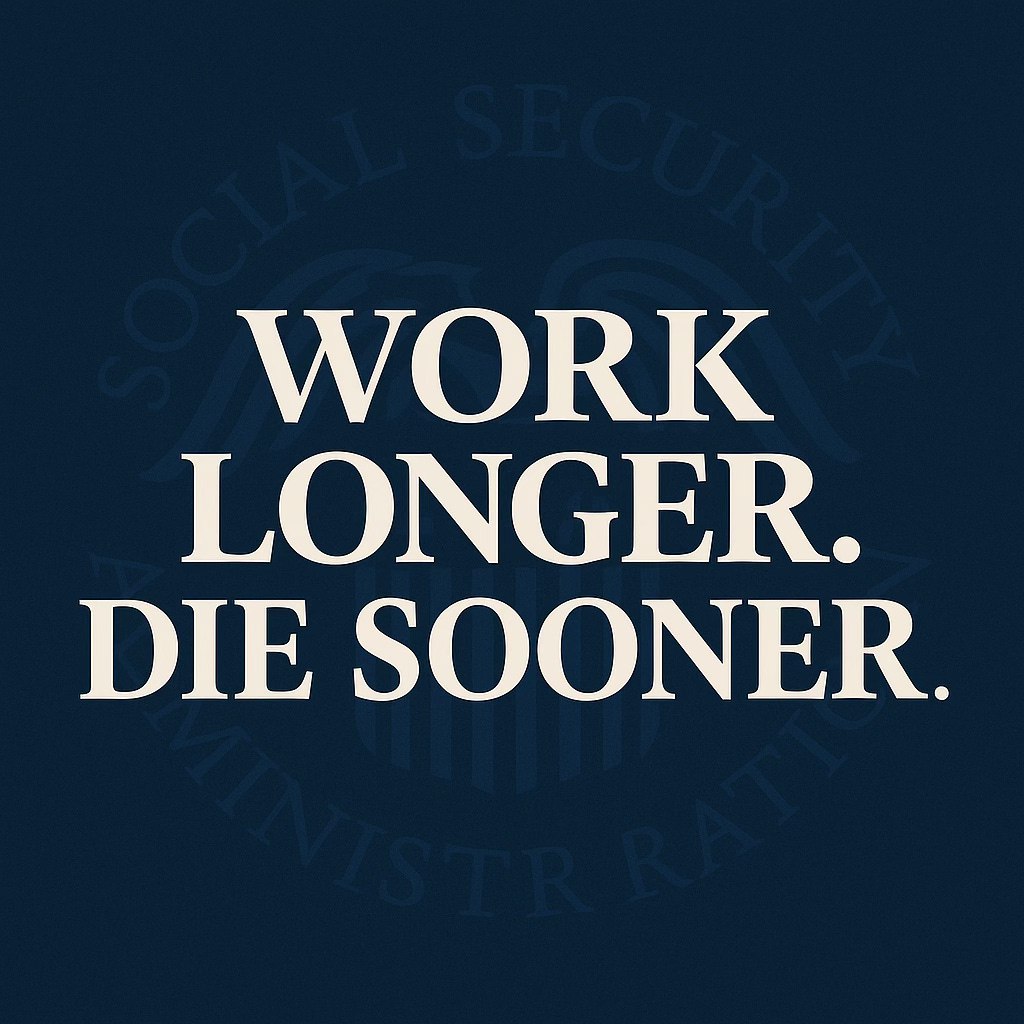Work Longer. Die Sooner. The Government Needs the Money.
Social Security’s new math: work longer, die before the check clears.
The Gist: The White House is floating a rule that would strip “age” out of Social Security disability decisions — or delay it until you hit 60. The translation is simple: if you’re over 50 and can’t work, you’ll be told to keep trying. The government’s balance sheet thanks you.
The Cruel Math of “Modernization”
For decades, Social Security factored in age when deciding who qualifies for disability. That wasn’t charity; it was common sense.
If you’re 55 with a wrecked back after thirty years on the floor, you can’t just pivot to some desk job that doesn’t exist.
Now that logic is on the chopping block. Officials are calling it a “modernization.” I call it what it is — a cost-saving measure disguised as progress.
If the rule takes effect, the government admits roughly 750,000 fewer people over the next decade. That’s not a rounding error. That’s hundreds of thousands of families watching the floor disappear beneath them.
Phase One: Starve the System
Senator Ron Wyden nailed it: this is Phase One of a campaign to make Americans work into old age before they can access the benefits they already paid for.
The strategy isn’t new. Shrink the workforce inside SSA, close field offices, erase the metrics that show how bad the delays are — and then claim the system’s “inefficient.”
Next, change the rules so fewer people qualify, and call that reform.
The Human Side They Pretend Not to See
For people living on the edge, a “rule change” isn’t abstract. It’s whether you can pay rent, keep the lights on, or fill prescriptions.
Michelle Spadafore from the New York Legal Assistance Group said it plainly: “Any small cut in that delicate balance can be the difference between paying your utilities that month.”
These are folks who already fought their way through years of paperwork, medical exams, and appeals.
Now the finish line moves — again — because someone in Washington decided older workers can “just retrain.”
What This Really Signals
This isn’t just about disability. It’s about a shift in values — the quiet pivot from public obligation to personal endurance.
Work until you drop. Retire into poverty. Die before you collect too much.
When they say “modernization,” what they mean is fewer payouts, fewer people, fewer problems — for them, not for you.
That’s the quiet part said out loud.
The Fight Ahead
The rule isn’t final. It’ll hit the Federal Register soon, and that’s the moment to speak up — through public comments, calls to Congress, and pressure on oversight committees.
The administration’s counting on fatigue and silence. Don’t give them either.
The Quiet Fight
Every generation gets tested on what kind of country it wants to be.
Some fights happen in the streets; others happen in the fine print of the Federal Register, where no one’s looking.
This is one of those quiet ones — the kind that decides whether we protect people who gave their best years to the workforce, or grind them down for one last quarter of profit.
The opposition is betting on exhaustion.
We persist — here, and in thousands of homes and hearts throughout the land.
Remember, you are not alone. They just want you to think you are.



